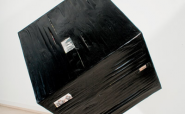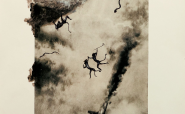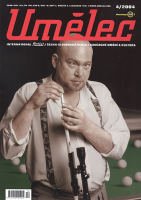|
Belarus is, along with Luxembourg, one of the least known countries in Europe. Luxembourg is the destination of order-loving retired people from the West, Belarus for Russian ones. Both countries provide the same amount of opportunities to have fun. Belarus is like traveling with a time machine—one that won’t bring you back very far, but you can be sure of going back a good thirty years. The situation is similar to how it was in the Socialist East Germany or Czechoslovakia of the 80s. Most Belarusians are order-loving and proper like the Germans, and reserved and withdrawn like the Czechs. Society is little divided by class and the social divisions are more like small groups of children that don’t speak with each other. Intellectuals, artists and educated people are slowly disappearing. Some of them have already left the country and many others are preparing to do so. The opposition is desperate in every sense of the word. Only those who never misbehave can feel secure in Belarus.
In Belarus, contemporary art, or anything else with an ambiguous meaning, is not allowed. Malevich and Lukashenko are a specter and an inspiration to Belarusian art. Malevich is the greatest non-living contemporary artist and Lukashenko the last living European dictator. Both leave a deep rut in their wake—one that is easy to fall into. Unlike Fukuyama, most Belarusian artists think that history ended with Malevich’s death. They love art history and they like to make fun of it in their work or misuse it in many other ways. The Belarusian people have a strange, unhealthy relationship with Lukashenko. There is a sexual undercurrent. Let’s hope that when this masochistic deviation blows over, his palace will be turned into a gallery of contemporary art like Ceauşescu’s was in Romania. Due to the difficulty in verifying information, in the last ten years the highest number of media clichés have been written about Belarus. It is hard for foreigners even to get there, let alone to learn something once there. The materials for this issue were prepared directly in Belarus.
Recommended articles

|
|
Borrowing heavily from fairy tales, fables and science fiction, the art of Magda Tóthová revolves around modern utopias and social models and their failures. Her works address personal and social issues, both the private and the political. The stylistic device of personification is central to the social criticism emblematic of her work and to the negotiation of concepts used to construct norms.…
|

|
|
We’re constantly hearing that someone would like to do some joint project, organize something together, some event, but… damn, how to put it... we really like what you’re doing but it might piss someone off back home. Sure, it’s true that every now and then someone gets kicked out of this institution or that institute for organizing something with Divus, but weren’t they actually terribly self…
|

|
|
Goff & Rosenthal gallery, Berlin, November 18 - December 30, 2006
Society permanently renegotiates the definition of drugs and our relationship towards them. In his forty-five minute found-footage film The Conquest of Happiness, produced in 2005, Oliver Pietsch, a Berlin-based video artist, demonstrates which drugs society can accommodate, which it cannot, and how the story of the drugs can be…
|

|
|
"In Cameroon, rumours abound of zombie-labourers toiling on invisible plantations in an obscure night-time economy."
|
|





Comments
There are currently no comments.Add new comment